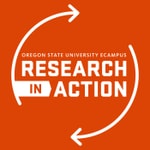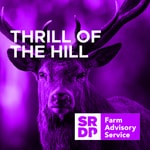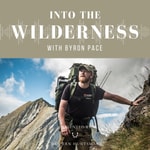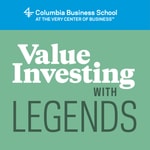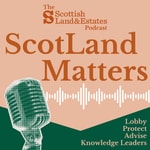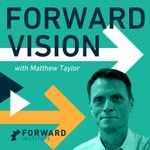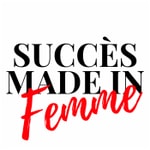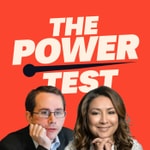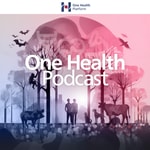This is Europe – Details, episodes & analysis
Podcast details
Technical and general information from the podcast's RSS feed.
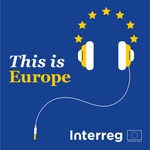
This is Europe
Interact, Interreg
Frequency: 1 episode/54d. Total Eps: 12

Recent rankings
Latest chart positions across Apple Podcasts and Spotify rankings.
Apple Podcasts
🇩🇪 Germany - government
17/07/2025#88🇩🇪 Germany - government
16/07/2025#66🇩🇪 Germany - government
15/07/2025#44🇩🇪 Germany - government
14/07/2025#25🇫🇷 France - government
26/11/2024#96🇫🇷 France - government
25/11/2024#82🇫🇷 France - government
24/11/2024#78🇫🇷 France - government
23/11/2024#73🇫🇷 France - government
22/11/2024#62🇫🇷 France - government
21/11/2024#54
Spotify
No recent rankings available
Shared links between episodes and podcasts
Links found in episode descriptions and other podcasts that share them.
See all- https://www.tempotalker.com/
74 shares
- http://www.interact-eu.net/
12 shares
RSS feed quality and score
Technical evaluation of the podcast's RSS feed quality and structure.
See allScore global : 83%
Publication history
Monthly episode publishing history over the past years.
The Drive for Green Mobility
Season 2 · Episode 6
jeudi 21 octobre 2021 • Duration 24:58
In the German city of Bremen, the local government has worked with an Interreg project encouraging locals to ditch their own cars for simply hiring one when they need it. Counting over 20,000 users so far, project coordinator Rebecca Karbaumer tells us how the scheme has managed to remove over 6,000 privately owned cars from the city’s streets, lowering its carbon footprint while improving locals’ quality of life.
Meanwhile, in the Austrian town of Graz, local Mayor Jakob Frey has been encouraging his citizens to go car free for years. He explains how, thanks to a recent Interreg project, his efforts have now gone further, building ‘multimodal mobility hubs’ for residents where they can bike, bus or car-share wherever they need to go.
Also, we hear from Philipp Rode, Executive Director of LSE Cities, about what city mayors, town planners and urban citizens need to do to bring our cities into the 21st century as hubs of high quality, sustainable living.
Participating programmes: North Sea Region and Central Europe
Powered by Interact. Co-financed by the European Regional Development Fund (ERDF).
Produced by Max Bower. A Tempo & Talker production.
Recycling is Silver, Reuse is Gold
Season 2 · Episode 5
mercredi 20 octobre 2021 • Duration 26:39
Across the sparse landscapes of the far north of Europe, scientists have collaborated with master beer brewer Mattias Bergström to show how much can be done with waste wheat leftover from the beer making process. Mattias tells us how important the support of Interreg is in getting this ‘circular’ economy up and running in Europe, and of the commercial opportunities it could eventually present across the continent.
Meanwhile in Austria, an industrious network of Reuse advocates have come together to create ‘Smart Parks’ offering upcycling masterclasses, repair cafes and reuse collection points. Johannes Münsch, upcycling expert and project manager, explains the role reuse can play in helping the continent achieve Zero Waste.
Also, we hear from Kate Raworth, author of the bestselling book Doughnut Economics, on why economies need to be reinvented for the 21st century and how governments can go about it.
Participating programmes: Central Europe and Northern Periphery and Arctic Programme
Powered by Interact. Co-financed by the European Regional Development Fund (ERDF).
Produced by Max Bower. A Tempo & Talker production.
A Green Europe
Season 1 · Episode 1
lundi 16 mars 2020 • Duration 37:28
In the first edition of This is Europe, Shahidha Bari hears from members of the Interreg community who are creating a greener Europe.
Shahidha hops on her bike to take a tour of Steffen Nozon’s hometown of Rostock in northern Germany. Steffen, an avid cyclist, is a mobility manager transforming his local area into green, car-free ‘living streets’. Meeting local residents on her bike ride, Shahidha also hears from Stefanie Maack, communications officer for Interreg, who explains that Rostock is just one of 10 cities working together to reimagine transport networks in their respective communities.
To meet the EU’s 2050 target of carbon neutrality, millions of homes need to be renovated to be greener, smarter and more energy efficient. Thanks to Interreg, small housing associations across the EU are working together to achieve this ambitious goal. To find out more, Shahidha speaks to Rutger Vrielink, manager of strategy and innovation at the Domijn housing association in Enschede, Netherlands.
John Drysdale is an arable farmer on the Balgonie estate in Fife, Scotland. As a self-described shooter, forester and conservationist, John has always been interested in biodiversity. Taking us on a tour of his land, John explains what motivates him to work with Interreg and 10 other farms in five countries to encourage the grey partridge to thrive - a bird which is seen as a reliable indicator of biodiversity. Working with John is Fiona Torrance, from the Game and Wildlife Trust, who has developed a novel way to count the partridges - armed with a mobile phone and a bluetooth speaker.
Participating programmes: Interreg Baltic Sea Region, and Interreg North-Sea Region
Powered by Interact. Co-financed by the European Regional Development Fund (ERDF).
Produced by Frank Lockyer Palmer. A Tempo & Talker production.
Welcome to This is Europe
Season 1
mercredi 11 mars 2020 • Duration 04:33
There are 27 countries which make up the European Union, a union whose official motto is, ‘United in Diversity’. But how exactly do you cultivate unity across a region with such a diverse mix of culture, language and heritage?
In this brand new podcast, broadcaster Shahidha Bari talks to the Europeans whose lives have been transformed by Interreg. Celebrating its 30th anniversary in 2020, Interreg was created in a spirit of knowledge-sharing and collaborative thinking both within the EU and beyond to help create a peaceful and prosperous union.
Across the series you’ll hear how the Interreg community works with everyone from fisherman to farmers, city planners to entrepreneurs, forging stronger bonds across borders, tackling pressing issues such as climate change and investing in young Europeans.
Join us on our journey across this great continent.
This is Europe - an Interreg podcast. Coming soon to all platforms.
Powered by Interact. Co-financed by the European Regional Development Fund (ERDF).
The Power of Social Inclusion
Season 2 · Episode 4
mercredi 13 octobre 2021 • Duration 23:28
Following a flight from Zagreb to Dubrovnik, Bruno Tot, from the Croatian Blind Union, is ready to inspect the work of a project helping blind and visually impaired people to travel independently. Visually impaired himself, Bruno tells us of the challenges involved in travelling Europe today and how the programme is improving accessibility for people like him.
Meanwhile in Lebanon, amidst one of the worst crises in the country’s history, Interreg is funding work developing a drastically new model of care and inclusion for the nation’s elderly. Psychiatrist and project partner Dr Georges Karam explains how it’s all focused on a subject still very much taboo in Lebanese society - mental health.
Participating programmes: Danube and Mediterranean Sea Basin Programme (ENI CBC)
Powered by Interact. Co-financed by the European Regional Development Fund (ERDF).
Produced by Max Bower. A Tempo & Talker production.
Feeding Our Future Generations
Season 2 · Episode 3
mercredi 6 octobre 2021 • Duration 25:42
In Sweden, a food revolution has been going on for some time. Consumers are increasingly demanding local produce of superior quality. We hear how meat farmer Agnetha Björnsdotter Berglund has capitalised on the trend, transforming her business by going local thanks to an Interreg programme linking small producers to national supermarkets.
Meanwhile, perched a few miles from the French riviera, the small town of Mouans-Sartoux has held out against the advances of property developers to build a farm feeding its schoolchildren organic food. The town’s deputy mayor, Gilles Pérole, tells us why he’s on a mission to get his citizens ‘thinking globally and acting locally.’
In Eastern Europe, another Interreg initiative is helping micro producers grow their businesses by linking them directly to local consumers through a platform many had never used before - the internet. Tomislav Katančić, project manager at Croatian e-commerce portal eCeker, explains the “0km” philosophy that has driven his work with the project and invigorated the local food economy.
In addition, we hear from Matt Reynolds, Science Editor at WIRED magazine, about the challenges the world faces in sustainably feeding a population set to reach 9.7 billion by 2050.
Participating programmes: North Sea Region, Urbact and Mediterranean
Powered by Interact. Co-financed by the European Regional Development Fund (ERDF).
Presented by Shahidha Bari. Produced by Max Bower. A Tempo & Talker production.
Seeking refuge
Season 2 · Episode 2
mercredi 29 septembre 2021 • Duration 26:49
Shahidha Bari hears from refugees that have fled violence for the continent and the Interreg funded projects helping them to integrate into their new lives.
In the Italian city of Parma, the ‘Wonderful House’ is providing refugees with accommodation, visa application support, language training and other resources to help them become fully fledged citizens of their new home. Pedro Apollos, Wonderful House manager and former refugee, tells us about his incredible story.
Meanwhile, in the Limburg region of Belgium and the Netherlands, an innovative project has helped many refugees gain meaningful full-time work and even national citizenship. Syrian refugee Yayha Al Ghazali tells us how it has changed everything, providing him and his family with a new life and hope for the future.
Also, we hear from Alex Betts, Professor of Forced Migration and International Affairs at the University of Oxford, about the complicated interplay between the political, social and economic aspects of refugees seeking a new home in Europe.
Participating programmes: Euregio Meuse-Rhine and Central Europe
Powered by Interact. Co-financed by the European Regional Development Fund (ERDF).
Presented by Shahidha Bari. Produced by Max Bower. A Tempo & Talker production.
Culture in crisis
Season 2 · Episode 1
mercredi 22 septembre 2021 • Duration 30:16
From the northern Italian city of Bologna, Interreg has funded an innovative pilot programme helping artists build their connections across the continent, finding new work opportunities and broadening their creative community. Musician Guido Manfrini tells us about his work with the project and how the industry has coped with performance venues being shut for over a year.
Meanwhile, in the far south western corner of Europe, two Portuguese towns have teamed up with their Spanish neighbour across the Guadiana river to create a “EuroCity”, bringing their events programmes together into a joint cultural agenda across the area. Superstar Portuguese singer Susana Travassos reveals how the project helped her get over the effects of isolation - and why it's so important for the region.
On the Croatian-Serbian border, a group of daring musicians managed to play on throughout the pandemic in 2020. Mirko Boch, director of the Zagreb Philharmonic Orchestra, tells us how he kept the show on the road, while also bringing communities together who historically have had a difficult relationship.
Participating programmes: Mediterranean, España-Portugal (POCTEP) and Croatia-Serbia
Powered by Interact. Co-financed by the European Regional Development Fund (ERDF).
Presented by Shahidha Bari. Produced by Max Bower. A Tempo & Talker production.
Welcome to This is Europe - Season 2
Season 2
mercredi 1 septembre 2021 • Duration 02:10
There are 27 countries which make up the European Union, a union whose official motto is, ‘United in Diversity’. But how exactly do you cultivate unity across a region with such a diverse mix of culture, language and heritage?
In the second series of This Is Europe, broadcaster Shahidha Bari talks to the Europeans whose lives have been transformed by Interreg - a community that was created in a spirit of knowledge-sharing and collaborative thinking both within the EU and beyond to help create a peaceful and prosperous union.
Across the series you’ll hear how the Interreg community works with everyone from refugees to reuse pioneers, musicians to doctors, forging stronger bonds across borders, tackling pressing issues such as food sustainability and green mobility.
Join us on our journey across this great continent.
This is Europe - an Interreg podcast. Powered by Interact. Co-financed by the European Regional Development Fund (ERDF).
What now for Europe?
Season 1 · Episode 4
lundi 12 octobre 2020 • Duration 44:23
Shahidha Bari convenes a panel of European thinkers for a conversation about the future of cooperation on the continent.
Simon Jenkins is a Guardian columnist and the author of ‘A Short History of Europe: From Pericles to Putin’.
Birte Wassenberg is Professor in Contemporary History at the University of Strasbourg.
Reinier Zweers works with Interreg as Coordinator of European Cooperation in the Gelderland province.
Together, they tackle the big questions facing Europe – from populist politics to the climate crisis – and ask how the continent might survive and thrive now and after the global pandemic.
Recorded remotely, across three different countries, this episode marks the 18th European Week of Regions and Cities - and dives into the role that Interreg can play at a decisive moment in the history of Europe.
Powered by Interact. Co-financed by the European Regional Development Fund (ERDF).
A Tempo & Talker production.
